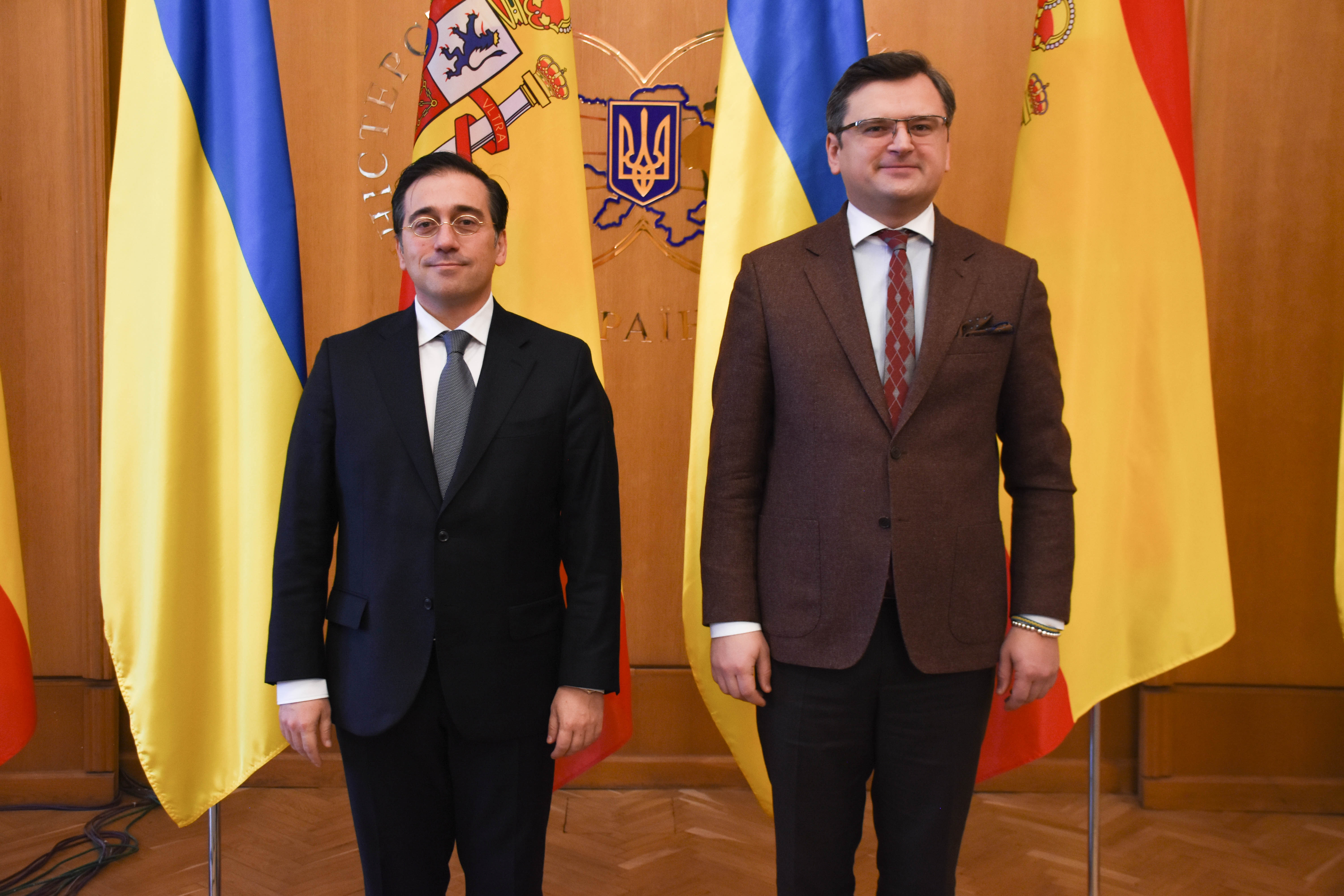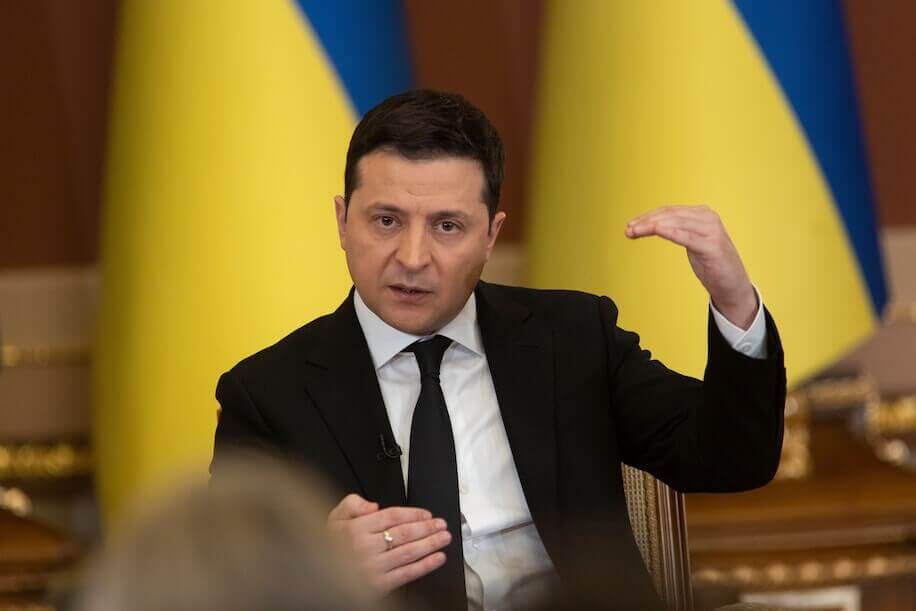On Wednesday, Ukrainian President Volodymyr Zelensky and Minister of Foreign Affairs Dmytro Kuleba met with Minister of Foreign Affairs, the European Union and Cooperation of Spain José Manuel Albares in Kyiv, who had come to declare Spain’s support for Ukraine in light of Russia’s continued military provocations. Separately, Ukraine also held talks with top diplomats from Czech Republic, Austria and Slovakia who voiced their support for Kyiv amid Moscow’s 100,000 strong military build-up along the Ukrainian border.
In a press conference, Zelensky noted that his discussion with Albares centred around the ongoing security situation between Ukraine and Russia, welcoming Spain’s support for Ukrainian sovereignty and territorial integrity. Zelensky added that he counted on Spain to also support Ukraine’s ambitions to attain the European Union (EU) status and also updated them about his position in the upcoming Normandy Format talks to be held in Berlin on Thursday. Kuleba emphasised that Russia’s behaviour poses a threat to European security, adding that continuous diplomacy will help reduce tensions.
Albares assured Kuleba that Spain, in coordination with the EU, is ready to implement comprehensive measures, including new sanctions on Russia, to deter further aggression — a reiteration of Spanish Prime Minister Pedro Sanchez’s warning to Moscow. The foreign ministers also discussed plans for Ukraine’s Euro-Atlantic integration ahead of the upcoming North Atlantic Treaty Organization (NATO) summit in Madrid this June.
Ahead of his meeting in Kyiv, Albares said, “All our efforts are geared towards the peaceful resolution of this dispute,” adding that war was not even an option. Last month, Spain sent warships to the Mediterranean and the Black Sea as part of the NATO naval forces in response to Russia’s aggressive military activities that threaten Ukraine.

In a separate meeting on Wednesday, Kuleba met his counterparts from the Czech Republic, Austria and Slovakia — also known as the Slavkov trilateral. Delegations from the Slavkov countries expressed their unified support for Ukraine, affirming the EU’s readiness to impose “tough economic sanctions” on Russia to avoid further hostilities. The foreign ministers also discussed Ukraine’s accession to the EU, particularly under Czech Republic’s EU Presidency in the latter half of 2022.
Earlier this week in a fresh wave of diplomatic efforts to resolve tensions between Moscow and Kyiv, French President Emmanuel Macron met with his Russian counterpart Vladimir Putin, followed by a meeting with Zelensky the next day. Macron’s efforts come after talks between the United States (US) and Russia over Putin’s security proposal yielded no breakthroughs.
Kremlin spokesman Dmitry Peskov said that Russia saw “positive signals” regarding a solution to the Ukrainian crisis, particularly on the lines of implementing the Minsk Agreements after Macron’s meeting with Zelensky. On Friday, Ukraine, Russia, France and Germany are set to hold talks under the Normandy Format that are aimed at ending the conflict in Donbas. They will convene under this format for the first time since 2015.

